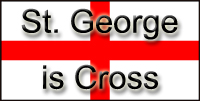Burning cars and waving placards
I am not surprised that a few months ago large numbers of the French immigrant population were rioting in the streets. Unemployment amongst this area of society is currently 49%. Youth unemployment averages in France 23%, and total unemployment is desperately struggling to get down below 9%. This, in a Western European economy. It's no wonder economic growth for 2005 was only 1.9%.
Over half GDP in France comes from the public sector - private businesses are in the minority, and why? Because it's almost illegal to fire someone so there is no incentive for businesses to expand and new jobs to be created. With all the risks that come with starting up a new business, having the additional fear that you will be lumbered with wages for people who aren't making money for you isn't going to encourage you.
Unfortunately, this is an example of the European Social Model being thrust upon the unfortunate members of the European Union: A Union so blinded by its desire for a single state, it fails to see how chronically ill so many economies are, and how it's prescription will cause the vibrant economies to stutter to a halt in time.
Here is a little summary from the Guardian today about welfare systems and employment in some EU countries:
FRANCE: Job protections include generous vacation, pensions and maternity leave,
and subsidized meals and transport. It is extremely difficult to fire anyone
with a permanent contract, and layoffs can be blocked by courts. High youth
unemployment prompted a new law that would make it easier to fire young workers
to try to encourage hiring. The law has prompted protests and strikes.
BRITAIN: Most benefits are decided by the employer, not the state. Layoffs for
economic reasons are common. Mass protests are rare, though anger over a pension
dispute prompted public sector workers to stage a one-day strike Tuesday.
GERMANY: Workers enjoy several weeks of vacation and generous pensions, and most
work weeks run less than 40 hours. The two ruling parties agreed last year to
ease the regulation of the labor market to encourage firms to hire more staff,
but the move has met wide opposition.
ITALY: Job security is playing a key role in the campaign for April 9-10
elections. The government introduced temporary work contracts in 2002 after
protests forced them to water down deeper reforms. Like France, Italy has
generous protections and high youth unemployment.
NORWAY: With a booming oil economy, Norway has just 3 percent unemployment.
Norwegians have strong rights in the workplace, good unemployment and sick leave
benefits, legislated time off, holidays and working hours. Employers often
include a contract clause of a six-month trial period for new employees.
BALTIC STATES: Labour laws in Lithuania, Latvia and Estonia favour employers, who
have few restrictions in hiring and firing. With many young people having moved
to Britain, Ireland and Sweden since 2004, employers are offering health plans
and career training to entice workers. Estonia's laws protect workers with
children younger than 3 and make it nearly impossible for employers to fire
pregnant women.
POLAND: The EU's highest jobless rate at 18 percent. Its rigid labor laws - in
part a legacy of the strong social safety net once guaranteed by communism -
make firings difficult.
SWEDEN: Strong worker protections and generous welfare benefits are hallmarks of
Sweden's cherished social model. To fire a worker, an employer must show it is
absolutely necessary because of cutbacks or the worker has severely failed to
live up to expectations. Offers a minimum of five weeks paid vacation or the
right to up to 480 days of paid parental leave.










No comments:
Post a Comment